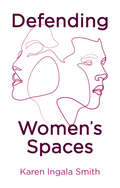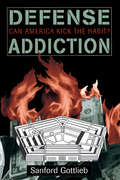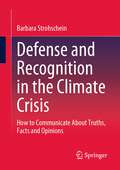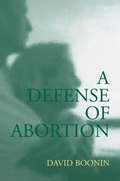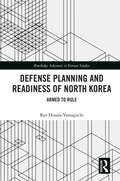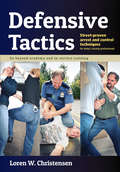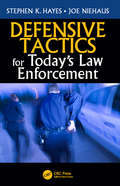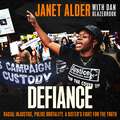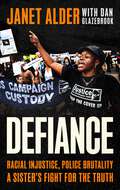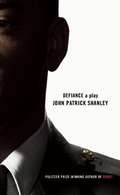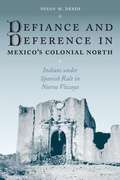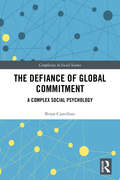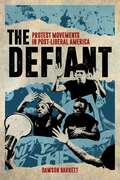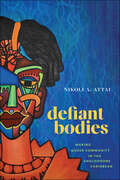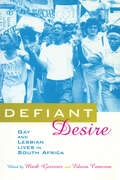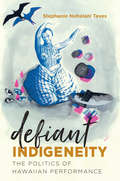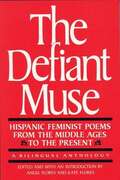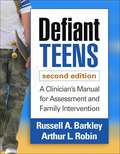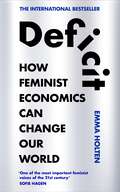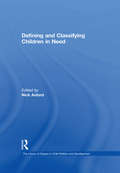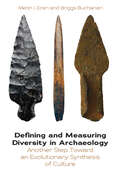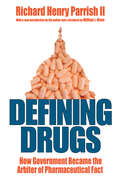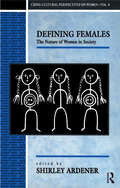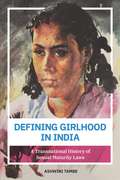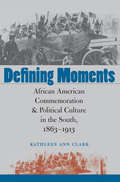- Table View
- List View
Defending Women's Spaces
by Karen Ingala SmithWho counts as a woman? This question lies at the heart of many public debates about sex and gender today. While we increasingly recognise the desire of some to eliminate the sex binary in law, a particular boiling point emerges through conflicting demands over women&’s spaces. Which should govern access to these – sex or gender identity? Karen Ingala Smith, a veteran campaigner for women&’s and girls&’ rights, opts for the former. In this trenchant critique of inclusivity politics, she argues that we cannot ignore the wealth of evidence which shows that people of the female sex have a unique set of needs which are often not met by mixed-sex spaces. Drawing on her 30 years of experience in researching and recording men&’s violence against women and girls, she outlines how certain spaces, including refuges, benefit from remaining single sex – and what they stand to lose. Written with sensitivity and respect for all concerned, this book nevertheless dismantles the idea that we have reached a post-sex utopia.
Defense Addiction: Can America Kick The Habit?
by Sanford GottliebWhatever happened to the post?Cold War ?peace dividend?? Why does military spending continue to escape federal budget reductions? Why, despite the nearly universal desire to reduce government waste and budget deficits, is the United States still saddled with a costly, bloated military-industrial complex? The answer, says Sanford Gottlieb, is a debilitating dependence of a key sector of the American economy on defense jobs and profits.Based on hundreds of interviews with defense contractors, union representatives, members of Congress, state and federal officials, lobbyists, economic development professionals, and local activists, Defense Addiction explains how these groups and individuals cope with defense dependence, competition for federal funds, and budget and job cuts?painting a sobering picture of how this addiction hampers the nation's ability to deal effectively with a host of domestic and global problems.Providing guidance to companies and communities struggling to break free in the face of inadequate government policies, Gottlieb's engaging and jargon-free volume points to civilian public investments, reduced military spending, strengthened international peacekeeping, and other measures that could help our country kick the habit.
Defense and Recognition in the Climate Crisis: How to Communicate About Truths, Facts and Opinions
by Barbara StrohscheinTruths, facts and opinions on the climate issue are often met with psychological or social defense, both publicly and privately. Based on selected psychological and philosophical theories as well as data material, this book shows how defense comes about, how it works, and how, on the other hand, the necessary recognition can succeed on various levels. It is only through recognition that constructive discourse becomes possible. This book offers all the basics to be able to theoretically and practically solve communication conflicts between defense and recognition in the climate crisis.
A Defense of Abortion
by David Boonin(From the book) David Boonin has written the most thorough and detailed case for the moral permissibility of abortion yet published. Critically examining a wide range of arguments that attempt to prove that every human fetus has a right to life, he shows that each of these arguments fails on its own terms. He then explains how even if the fetus does have a right to life, abortion can still be shown to be morally permissible on the critic of abortion's own terms.
Defense Planning and Readiness of North Korea: Armed to Rule (Routledge Advances in Korean Studies)
by Ryo Hinata-YamaguchiHow has North Korea developed and managed its military readiness to achieve its strategic ends? Hinata-Yamaguchi analyzes North Korea’s defense planning by looking at how political, economic, and societal factors affect the Korean People’s Army’s (KPA) readiness and strategies. He answers four key questions: How have the internal and external factors shaped North Korea’s security strategy? How do the political, economic, societal, and environmental factors impact North Korea’s defense planning? What are North Korea’s defense planning dilemmas and how do they impact the KPA’s readiness? What are the key implications for regional security and the strategies against North Korea? This analysis, drawing on various Korean, English, Japanese, and Chinese sources on North Korea and military affairs, will be of great value to strategists and policy analysts as well as scholars of East Asian security issues.
Defensive Tactics: Street-Proven Arrest and Control Techniques
by Loren W. ChristensenDefensive Tactics: Street Proven Arrest and Control Techniques Whether you are a law enforcement officer seeking to improve your edge or a martial artist wanting to expand your knowledge of street-proven techniques, you will find Defensive Tactics: Street-Proven Arrest and Control Techniques is filled with invaluable information to prepare you for even the most difficult scenarios.Highlights include* Joint manipulation that works* Leverage control vs. pain control* Striking with the hands, feet, forearms, and elbows* Safely and quickly crossing the gap* Blocking an assailant's strikes* Using vulnerable points to gain compliance* Head disorientation* Safe application of carotid constriction or "sleeper" holds* Controlling a suspect on the ground* Arresting big guys* Fighting concepts to take on patrol* Weapon retention in close quarters and on the ground Loren W. Christensen is a retired cop and high-ranking martial artist who survived everything the mean streets threw at him, working patrol, gang enforcement, and dignitary protection. Defensive Tactics goes beyond what is taught in the academy, during an officer's in-service training, and what is allowed by the administration.This book also includes a chapter on proven ways to control a suspect on the ground, written by LAPD officer Mark Mireles, an MMA coach, police academy trainer, and champion wrestler.
Defensive Tactics for Today’s Law Enforcement
by Stephen K. Hayes Joe NiehausFew of the many defensive tactics books on the market include the training and methods of martial arts. Drawing on the centuries-old techniques of Ninjutsu, Defensive Tactics for Today’s Law Enforcement offers alternatives to the traditional police defensive tactics taught to most officers. This text stresses relying on natural tendencies in a violent encounter to ensure officer safety and to better utilize the techniques and training officers do receive. By integrating existing training with martial arts expertise, Defensive Tactics provides officers access a full complement of techniques to better navigate physical conflict safely and effectively. Intended for law enforcement practitioners, as well as practitioners of any other professions that present a personal security risk, Defensive Tactics for Today’s Law Enforcement will better equip readers with a diverse range of defensive tactics.
Defiance: Racial Injustice, Police Brutality, A Sister's Fight for the Truth
by Janet Alder Dan Glazebrook'This is a story - among many others - of justice denied. Fighting this battle over the past quarter of a century has been a lesson in collusion, cover-up and all the sophisticated - as well as the crude - methods employed by different parts of the British state to maintain the status quo, protect itself and those in its employ and evade justice . . . This book is my attempt to bring some kind of accountability, simply by telling the truth.'The police killing of Christopher Alder was one of the most notorious deaths in custody in the UK, involving the destruction of evidence, a whitewash of an investigation and illegal surveillance. Christopher's sister Janet has been relentlessly fighting for justice for decades, and fearlessly holds the UK's state institutions to account in this extraordinary book.This book is a probing expose of what went on, based on exhaustive documentary evidence, as well as the personal story of Janet's fight to uncover the truth.
Defiance: Racial Injustice, Police Brutality, A Sister's Fight for the Truth
by Janet Alder Dan Glazebrook'This is a story - among many others - of justice denied. Fighting this battle over the past quarter of a century has been a lesson in collusion, cover-up and all the sophisticated - as well as the crude - methods employed by different parts of the British state to maintain the status quo, protect itself and those in its employ and evade justice . . . This book is my attempt to bring some kind of accountability, simply by telling the truth.'The police killing of Christopher Alder was one of the most notorious deaths in custody in the UK, involving the destruction of evidence, a whitewash of an investigation and illegal surveillance. Christopher's sister Janet has been relentlessly fighting for justice for decades, and fearlessly holds the UK's state institutions to account in this extraordinary book.This book is a probing expose of what went on, based on exhaustive documentary evidence, as well as the personal story of Janet's fight to uncover the truth.
Defiance
by John Patrick Shanley"Defiance is a necessary step in the life of an individual and in the life of a nation."--John Patrick Shanley"As thoughtful and probing as its predecessor, Defiance [is] filled with the provocative questions and bristling dialogue for which Mr. Shanley is known . . . as it wonders about its big, knotty subjects."--Ben Brantley, The New York Times Defiance is the "very rich and satisfying" (The Village Voice) second work in John Patrick Shanley's trilogy that began with Doubt. The play is set in 1971 at Camp Lejeune, North Carolina, where Lt. Col. Morgan Littlefield and his reluctant protégé Capt. Lee King--a young African American officer--clash over issues of race and authority within the Marine Corps, even as the civil rights movement and Vietnam War divide the world outside. In this high-stakes struggle at the top of the ranks, witnessed by the base's inquisitive Chaplain White and Littlefield's irreproachable wife Margaret, Shanley has crafted another timely play exploring issues of power and morality within a hallowed institution. John Patrick Shanley's Doubt won the 2005 Pulitzer Prize for Drama and the Tony Award for Best Play, and was chosen as best play of the year by over ten news-papers and magazines. His other plays include Danny and the Deep Blue Sea, Four Dogs and a Bone, Psychopathia Sexualis, and Savage Limbo. He has written extensively for TV and film, including Moonstruck, for which he won an Academy Award for best screenplay.
Defiance and Deference in Mexico's Colonial North: Indians under Spanish Rule in Nueva Vizcaya
by Susan M. DeedsIn their efforts to impose colonial rule on Nueva Vizcaya from the sixteenth century to the middle of the seventeenth, Spaniards established missions among the principal Indian groups of present-day eastern Sinaloa, northern Durango, and southern Chihuahua, Mexico—the Xiximes, Acaxees, Conchos, Tepehuanes, and Tarahumaras. Yet, when the colonial era ended two centuries later, only the Tepehuanes and Tarahumaras remained as distinct peoples, the other groups having disappeared or blended into the emerging mestizo culture of the northern frontier. Why were these two indigenous peoples able to maintain their group identity under conditions of conquest, while the others could not? In this book, Susan Deeds constructs authoritative ethnohistories of the Xiximes, Acaxees, Conchos, Tepehuanes, and Tarahumaras to explain why only two of the five groups successfully resisted Spanish conquest and colonization. Drawing on extensive research in colonial-era archives, Deeds provides a multifaceted analysis of each group's past from the time the Spaniards first attempted to settle them in missions up to the middle of the eighteenth century, when secular pressures had wrought momentous changes. Her masterful explanations of how ethnic identities, subsistence patterns, cultural beliefs, and gender relations were forged and changed over time on Mexico's northern frontier offer important new ways of understanding the struggle between resistance and adaptation in which Mexico's indigenous peoples are still engaged, five centuries after the "Spanish Conquest."
The Defiance of Global Commitment: A Complex Social Psychology (Complexity in Social Science)
by Brian CastellaniThe Brexit vote; the election of Trump; the upsurge of European nationalism; the devolution of the Arab Spring; global violence; Chinese expansionism; disruptive climate change; the riotous instabilities of the world capitalist system…While diverse in nature, these events share a common denominator: they are less a failure of policy, and more a complex social psychological reaction to globalization, the result of which presently threatens our survival on Earth. Based on a critical reading of Freud’s Civilization and its discontents, The defiance of global commitment constructs a complex social psychology of how people all over the world are addressing globalization. Drawing on the latest advances in the cognitive, social, and complexity sciences, this timely volume presents a global model of defiance and the triangular tensions between nostalgic retreat, global aggression, and civil society, as manifested in forms ranging from nostalgic resentment and LGBTQI issues to racism and ecological aggression. Revealing how globalization and its discontents manifest the darker reaches of the human psyche and its conflicted relations with others, this insightful monograph will appeal to undergraduate and postgraduate students, as well as postdoctoral researchers, interested in fields such as globalization studies, complexity sciences and social psychology.
The Defiant: Protest Movements in Post-Liberal America
by Dawson BarrettIn the tradition of Howard Zinn’s A People’s History of the United States, an engaging account of the last half-century of political discontent The history of the United States is a history of oppression and inequality, as well as raucous opposition to the status quo. It is a history of slavery and child labor, but also the protest movements that helped end those institutions. Protesters have been the driving force of American democracy, from the expansion of voting rights and the end of segregation laws, to minimum wage standards and marriage equality. In this exceptional new book, Dawson Barrett calls our attention to the post-1960s period, in which US economic, cultural, and political elites turned the tide against the protest movement gains of the previous forty years and reshaped the ability of activists to influence the political process.For much of the last half-century, policymakers in both major US political parties have been guided by the “pro-business” tenets of neoliberalism. Dubbed “casino capitalism” by its critics, this economy has ravaged the environment, expanded the for-profit war and prison industries, and built a global assembly line rooted in sweatshop labor, while more than doubling the share of American wealth and income held by the country’s richest 1 percent. The Defiant explores the major policy shifts of this new Gilded Age through the lens of dissent—through the picket lines, protest marches, and sit-ins that greeted them at every turn. Barrett documents these clashes at neoliberalism’s many points of impact, moving from the Arizona wilderness, to Florida tomato fields, to punk rock clubs in New York and California—and beyond. He takes readers right up to the present day with an epilogue tracing the Trump administration’s strategies and policy proposals, and the myriad protests they have sparked. Capturing a wide range of protest movements in action—from environmentalists’ tree-sits to Iraq War peace marches to Occupy Wall Street, #BlackLivesMatter, and more—The Defiant is a gripping analysis of the profound struggles of our times.
Defiant Bodies: Making Queer Community in the Anglophone Caribbean (Critical Caribbean Studies)
by Nikoli A. AttaiIn the Anglophone Caribbean, international queer human rights activists strategically located within and outside of the region have dominated interventions seeking to address issues affecting people across the region; a trend that is premised on an idea that the Caribbean is extremely homophobic and transphobic, resulting in violence and death for people who defy dominant sexual and gender boundaries. Human rights activists continue to utilize international financial and political resources to influence these interventions and the region’s engagement on issues of homophobia, transphobia, discrimination, and the HIV/AIDS epidemic. This focus, however, elides the deeply complex nature of queerness across different spaces and places, and fails to fully account for the nuances of queer sexual and gender politics and community making across the Caribbean. Defiant Bodies: Making Queer Community in the Anglophone Caribbean problematizes the neocolonial and homoimperial nature of queer human rights activism in in four Anglophone Caribbean nations -- Barbados, Guyana, Jamaica, and Trinidad and Tobago -- and thinks critically about the limits of human rights as a tool for seeking queer liberation. It also offers critical insight into the ways that queer people negotiate, resist, and disrupt homophobia, transphobia, and discrimination by mobilizing “on the ground” and creating transgressive communities within the region.
Defiant Desire: Gay and Lesbian Lives in South Africa
by Mark Gevisser Edwin CameronDefiant Desire records the lives of lesbian and gay South Africans of all races as they have lived in the face of censure, denial and oppression. The history of gay identity in South Africa is here in its past and present aspects: from a drag salon in Woodstock to a gay "shebeen" in kwaThema; from a church in a Pretoria nightclub to Johannesburg's lesbian and gay pride march; from Afrikaans love poetry to new activism. The book is a document of lesbian and gay struggle, and indispensable for those interested in the sexual politics coursing beneath the country's troubled passage to democracy.
Defiant Indigeneity: The Politics of Hawaiian Performance (Critical Indigeneities)
by Stephanie Nohelani Teves"Aloha" is at once the most significant and the most misunderstood word in the Indigenous Hawaiian lexicon. For K&257;naka Maoli people, the concept of "aloha" is a representation and articulation of their identity, despite its misappropriation and commandeering by non-Native audiences in the form of things like the "hula girl" of popular culture. Considering the way aloha is embodied, performed, and interpreted in Native Hawaiian literature, music, plays, dance, drag performance, and even ghost tours from the twentieth century to the present, Stephanie Nohelani Teves shows that misunderstanding of the concept by non-Native audiences has not prevented the K&257;naka Maoli from using it to create and empower community and articulate its distinct Indigenous meaning.While Native Hawaiian artists, activists, scholars, and other performers have labored to educate diverse publics about the complexity of Indigenous Hawaiian identity, ongoing acts of violence against Indigenous communities have undermined these efforts. In this multidisciplinary work, Teves argues that Indigenous peoples must continue to embrace the performance of their identities in the face of this violence in order to challenge settler-colonialism and its efforts to contain and commodify Hawaiian Indigeneity.
The Defiant Muse: A Bilingual Anthology
by Kate Flores Angel FloresThe poets write of love and friendship, revolution and peace, religion, nature, isolation, work, and family. The Dutch, French, German, and Italian volumes represent their respective countries.
Defiant Teens, Second Edition
by Arthur L. Robin Russell A. BarkleyThis authoritative manual presents an accessible 18-step program widely used by clinicians working with challenging teens. Steps 1-9 comprise parent training strategies for managing a broad range of problem behaviors, including those linked to oppositional defiant disorder (ODD) and attention-deficit/hyperactivity disorder (ADHD). Steps 10-18 focus on teaching all family members to negotiate, communicate, and problem-solve more effectively, while facilitating adolescents' individuation and autonomy. Practical reproducible handouts and forms are included; the print book has a large-size format and lay-flat binding to facilitate photocopying. Purchasers also get access to a Web page where they can download and print the reproducible materials. New to This Edition *Incorporates 15 years of research advances and the authors' ongoing clinical experience. *Fully updated model of the nature and causes of ODD. *Revised assessment tools and recommendations. *Reflects cultural changes, such as teens' growing technology use. See also the authors' related parent guide, Your Defiant Teen, Second Edition: 10 Steps to Resolve Conflict and Rebuild Your Relationship, an ideal client recommendation. For a focus on younger children, see also Dr. Barkley's Defiant Children, Third Edition (for professionals) and Your Defiant Child, Second Edition (for parents).
Deficit: How Feminist Economics Can Change Our World
by Emma Holten*AN INTERNATIONAL BESTSELLER*WINNER OF THE POLITIKEN LITERATURE PRIZE 2024'Brilliantly rewrites the history of economic thought to place 'her story' at its heart. A must-read' - Kate Raworth, author of DOUGHNUT ECONOMICS'One of the most important feminist voices of the 21st century . . . The book about capitalism we didn't know we needed' - Sofie HagenIn 2020, the prominent Danish feminist Emma Holten read an article stating that women were a net ‘deficit’ to society. Women took more than they gave, ‘draining’ the public purse by giving birth and taking parental leave. They contributed less than their fair share in taxes, because they often worked part-time to look after other people at home, or held low-paidjobs in the public sector. Denmark would be richer if women’s lives looked more like men’s, the economic experts concluded. A similar story is told around the globe.How did we get here? In Deficit, Emma Holten traces how economic thinkers – from the Enlightenment onwards – created a value framework that overlooked and neglected ‘women’s work’ and acts of care. She reveals how the economic models that drive political decisions today are just as flawed, giving us unparalleled monetary wealth, but causing deep social harms that are hurting us all.If we cannot properly value the things that matter, how can we build a better future?
Defining and Classifying Children in Need (The Library of Essays in Child Welfare and Development)
by Nick AxfordNeed is a popular but controversial concept in social policy. 'Needs-led' has become a mantra in children's services in recent years, yet theorists still argue about the meaning and value of the concept of 'need'. There are lots of needs assessment at the individual child and population levels, but case files vary enormously in quality and reports of need analyses frequently gather dust on shelves. How, then, should we define and measure children's needs, and how should this influence the design of services? This edited collection answers these questions in order to help policy makers, managers, practitioners and researchers with identifying and serving children in need. It offers a critical appraisal of the state of play regarding the theory of need, the needs that children have, methods for assessing children's needs at the individual and group levels, and approaches to designing services to meet identified needs.
Defining and Measuring Diversity in Archaeology: Another Step Toward an Evolutionary Synthesis of Culture
by Metin I. Eren Briggs BuchananCalculating the diversity of biological or cultural classes is a fundamental way of describing, analyzing, and understanding the world around us. Understanding archaeological diversity is key to understanding human culture in the past. Archaeologists have long experienced a tenuous relationship with statistics; however, the regular integration of diversity measures and concepts into archaeological practice is becoming increasingly important. This volume includes chapters that cover a wide range of archaeological applications of diversity measures. Featuring studies of archaeological diversity ranging from the data-driven to the theoretical, from the Paleolithic to the Historic periods, authors illustrate the range of data sets to which diversity measures can be applied, as well as offer new methods to examine archaeological diversity.
Defining Drugs: How Government Became the Arbiter of Pharmaceutical Fact
by Richard Henry Parrish IIDrug-related morbidity and mortality is rampant in contemporary industrial society, despite or perhaps because, government has assumed a critical role in the process by which drugs are developed and approved. Parrish asserts that, as a people, Americans need to understand how it is that government became the arbiter of pharmaceutical fact. The consequences of our failure to understand, he argues, may threaten individual choice and forestall the development of responsible therapeutics. Moreover, if current standards and control continues unabated, the next therapeutic reformation might well make possible the sanctioned commercial exploitation of patients. In Defining Drugs, Parrish argues that the federal government became arbiter of pharmaceutical fact because the professions of pharmacy and medicine, as well as the pharmaceutical industry, could enforce these definitions and standards only through police powers reserved to government. Parrish begins his provocative study by examining the development of the social system for regulating drug therapy in the United States. He reviews the standards that were negotiated, and the tensions of the period between Progressivism and the New Deal that gave cultural context and historical meaning to drug use in American society. Parrish describes issues related to the development of narcotics policy through education and legislation facilitated by James Beal and Edward Kremers, and documents the federal government's evolving role as arbiter of market tensions between pharmaceutical producers, government officials, and private citizens in professional groups, illustrating the influence of government in writing enforceable standards for pharmaceutical therapies. He shows how the expansion of political rights for practitioners and producers has shifted responsibility for therapeutic consequences from individual practitioners and patients to government. This timely and controversial volume is written for the scholar and the compassionate practitioner alike, and a general public concerned with pharmacy regulation in a free society.
Defining Females: The Nature of Women in Society (Cross-cultural Perspectives On Women Ser. #Vol. 4)
by Shirley ArdenerSecond, Revised EditionTo what are we referring when we speak of women? What is the nature of women in society; what is the nature of women in society? These are the central questions of this classic text which looks at areas ranging from England and Greece to Mongolia and Africa. The authors - anthropologists, sociologists, ethnologists, neurologists and psychologists - consider the structural position of women; how they are defined by reference to physiological and social markers, and how they are required to behave. They also consider ways in which different cultures identify and deal with such `natural' aspects of women as virginity, sexuality and childbearing. The broad variety of geographical perspectives reveals dissimilar as well as similar ideas about women - in their use of language and of space, matrifocality, and life trajectories.
Defining Girlhood in India: A Transnational History of Sexual Maturity Laws
by Ashwini TambeAt what age do girls gain the maturity to make sexual choices? This question provokes especially vexed debates in India, where early marriage is a widespread practice. India has served as a focal problem site in NGO campaigns and intergovernmental conferences setting age standards for sexual maturity. Over the last century, the country shifted the legal age of marriage from twelve, among the lowest in the world, to eighteen, at the high end of the global spectrum. Ashwini Tambe illuminates the ideas that shaped such shifts: how the concept of adolescence as a sheltered phase led to delaying both marriage and legal adulthood; how the imperative of population control influenced laws on marriage age; and how imperial moral hierarchies between nations provoked defensive postures within India. Tambe takes a transnational feminist approach to legal history, showing how intergovernmental debates influenced Indian laws and how expert discourses in India changed UN terminology about girls. Ultimately, Tambe argues, the well-meaning focus on child marriage has been tethered less to the interests of girls themselves and more to parents’ interests, achieving population control targets, and preserving national reputation.
Defining Moments
by Kathleen Ann ClarkThe historical memory of the Civil War and Reconstruction has earned increasing attention from scholars. Only recently, however, have historians begun to explore African American efforts to interpret those events. With Defining Moments, Kathleen Clark shines new light on African American commemorative traditions in the South, where events such as Emancipation Day and Fourth of July ceremonies served as opportunities for African Americans to assert their own understandings of slavery, the Civil War, and Emancipation--efforts that were vital to the struggles to define, assert, and defend African American freedom and citizenship.Focusing on urban celebrations that drew crowds from surrounding rural areas, Clark finds that commemorations served as critical forums for African Americans to define themselves collectively. As they struggled to assert their freedom and citizenship, African Americans wrestled with issues such as the content and meaning of black history, class-inflected ideas of respectability and progress, and gendered notions of citizenship. Clark's examination of the people and events that shaped complex struggles over public self-representation in African American communities brings new understanding of southern black political culture in the decades following Emancipation and provides a more complete picture of historical memory in the South.
